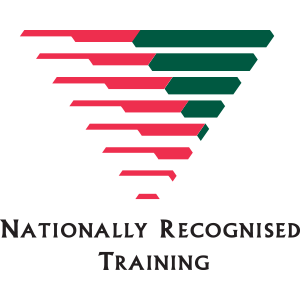Certificate III in Locksmithing Apprenticeship
Sorry, this course is not available for international students.
If you are a local student you may be eligible.
To find a course that's available to international students, please visit the search page:
Overview
3 years part time
February
February
Join a dynamic, high-demand industry
Equip yourself with the skills to succeed in the constantly evolving locksmith industry. Completed as part of an apprenticeship, Melbourne Polytechnic’s Certificate III in Locksmithing MEM30819 provides you with practical, hands-on training in the latest locksmithing technologies and methods. The global home security market was set to exceed $32 billion in 2019 and continue growing. Keep pace with the newest innovations in this space with this industry-approved course.
Learn in real world scenarios
Get a good grasp of day-to-day life as a locksmith with our practical learning approaches. You’ll practice real world scenarios using the machines, software and techniques used by locksmiths everyday. At Melbourne Polytechnic, our teachers are experienced, practicing locksmiths who can guide you as you practice in a fully equipped workshop and use industry software such as Instacode. Connect with the locksmithing industry by joining our community and embarking on a course recognised by the Locksmith Guild of Australia and the Master Locksmiths Association of Australasia.
Secure a bright future in a crucial trade
Skilled locksmiths have a variety of in-demand skills from lock picking to programming digital security systems. As a qualified locksmith, you can choose to focus on a specialised area of the physical security trade such as electronic access systems or automotive locksmithing. You might work for a security company, emergency services or even set your own schedule with your own locksmithing business.
Career Pathways
Where will the Certificate III in Locksmithing - Apprenticeship MEM30819 take me?
The security industry is large and diverse and includes fields such as locksmithing, electronic access and automotive work.
- Electronic Access System Engineer
- Alarm System Engineer
- Commercial Locksmith
- CCTV System Engineer
- Automotive Locksmith
- Vault Technician
- Domestic Locksmith
- Safe Technician
Course Details
How you will study
Each course has a dedicated learning method that is designed to let you thrive in your studies.
On-campus
Interactive learning in a face-to-face environment. Classes will be held at a Melbourne Polytechnic campus or partner institute. Visit the How You'll Study page for more information.
Class Schedule
Day and block release
Tue - AM and PM
Wed - AM and PM
Thu - AM and PM
Fri - AM and PM
Assessment Methods
Assessment methods may include observation tasks, simulation tasks, written assessments and tests.
Units of Study
The hours displayed are nominal, actual classroom hours delivered may differ. Please contact us for the latest student contact hours information.
| Code | Subject | Elective | Hours |
| CPPSEC2021A | Install security equipment and systems | Elective | 40 |
| CPPSEC3036A | Program security equipment and system | Elective | 30 |
| CPPSEC3037A | Test installed security equipment and system | Elective | 12 |
| CPPSEC3038A | Commission and decommission security equipment and system | Elective | 16 |
| CPPSEC3039A | Identify and diagnose electronic security equipment and system fault | Elective | 20 |
| CPPSEC3041A | Maintain and service security equipment and system | Elective | 24 |
| CPPSEC3047A | Provide estimate and quote on security system | Elective | 20 |
| MEM09002 | Interpret technical drawing | Core | 40 |
| MEM11011 | Undertake manual handling | Core | 20 |
| MEM12023 | Perform engineering measurements | Core | 30 |
| MEM12024 | Perform computations | Core | 30 |
| MEM13015 | Work safely and effectively in manufacturing and engineering | Core | 40 |
| MEM14006 | Plan work activities | Core | 40 |
| MEM16006 | Organise and communicate information | Core | 20 |
| MEM16008 | Interact with computing technology | Core | 20 |
| MEM17003 | Assist in the provision of on-the-job training | Core | 20 |
| MEM18001 | Use hand tools | Core | 20 |
| MEM18002 | Use power tools/hand held operations | Core | 20 |
| MEM20002 | Assemble and test lock mechanisms | Elective | 60 |
| MEM20003 | Install and upgrade locks and hardware | Elective | 40 |
| MEM20004 | Gain entry | Elective | 40 |
| MEM20006 | Maintain and service mechanical locking devices | Elective | 60 |
| MEM20007 | Plan and prepare a masterkey system | Elective | 60 |
| MEM20009 | Gain entry and reinstate fire and security containers | Elective | 40 |
| MEM20010 | Gain entry and reinstate automotive locking systems | Elective | 40 |
| MEM20011 | Service and repair fire and security containers | Elective | 60 |
| MEM20012 | Service and repair mechanical automotive locking systems | Elective | 60 |
| MEM20014 | Perform a site security survey | Elective | 20 |
| MEM20015 | Produce hand cut keys | Elective | 20 |
| MEM20016 | Produce keys by cutting to code | Elective | 20 |
| MEM20017 | Produce keys by duplication | Elective | 20 |
| MSMENV272 | Participate in environmentally sustainable work practices | Core | 30 |

Fees & Costs
| Concession | Government subsidised fee | Non-subsidised fee | |
|---|---|---|---|
| Tuition fee | $1350 | $6750 | $26600 |
| Materials fee | $1300 | $1300 | $1300 |
| Maximum annual amenities | $175 | $250 | $250 |
| Total payable | $2825 | $8300 | $28150 |
| Per year | $0 |
| Per semester | $0 |
The student tuition fees as published are subject to change given individual circumstances at enrolment.
Displayed course fees are indicative only. There are many variables that impact the total amount of your full course costs including qualification for government subsidies, concessions or recognition of prior learning. Tuition fees do not include the cost of student amenities or material costs.
This training is delivered with Victorian and Commonwealth Government funding. Contact us to find out if you’re eligible for a Government subsidy.
Melbourne Polytechnic offers a range of payment options to help you pay your tuition fees, so you can get on with your studies.
Fees displayed are effective for new applications received on or after 1st of November. Tuition fees do not include textbooks, course materials or overseas student health insurance and visa fees.
After initial deposit, international students are able to pay tuition fees in installments, four times per year.
For more detailed information please read the International Student Fees.
Fees explained
The fees for those ineligible for a government-funded enrolment.
The cost of tuition for those eligible for government funding.
Concession fees are charged at 20 per cent of the standard fees for enrolments in Certificate I to IV courses. To be eligible students must meet Skills First eligibility criteria and present a valid:
- Commonwealth Health Care card, or
- Pensioner Concession card, or
- Any dependent spouse or dependent child of one of the above cardholders, or
- Veterans Gold card.
The following groups are eligible for concession fees from Certificate I to Advanced Diploma level:
- Aboriginal and Torres Strait Islander students
- Asylum Seekers and victims of human trafficking
Additional expenses
The Student Services and Amenities Fee is charged at forty cents (40 cents) per student contact hour and is capped over a twelve (12) month period, effective from the enrolment date, to:
- $250 for full fee-paying students; and
- $175 for concession-paying students studying Certificate I, II, III, or IV.
Amenities fees are used to improve non-academic services including libraries, counselling services, student support, and recreational activities.
Requirements
You must be employed as an apprentice to enrol in this course.Next Steps
Apprenticeships are coordinated via the Trade and Traineeship Support Unit (TSU) where you will provide details of your employer, who will register you with an Australian Apprenticeship Support Network (AASN) provider.
The AASN will register your training contract with EPSILON and you will be allocated an EPSILON number. Melbourne Polytechnic will then be able to enrol you into your training program.
If you have any questions about the application procedures for an apprenticeship, please contact the TSU.
Recognising Organisations

Nationally Recognised Training This course is government accredited and has national recognition.
Government of South Australia
Local student means; you are an Australian citizen or permanent resident, a New Zealand citizen or a permanent humanitarian visa holder.


